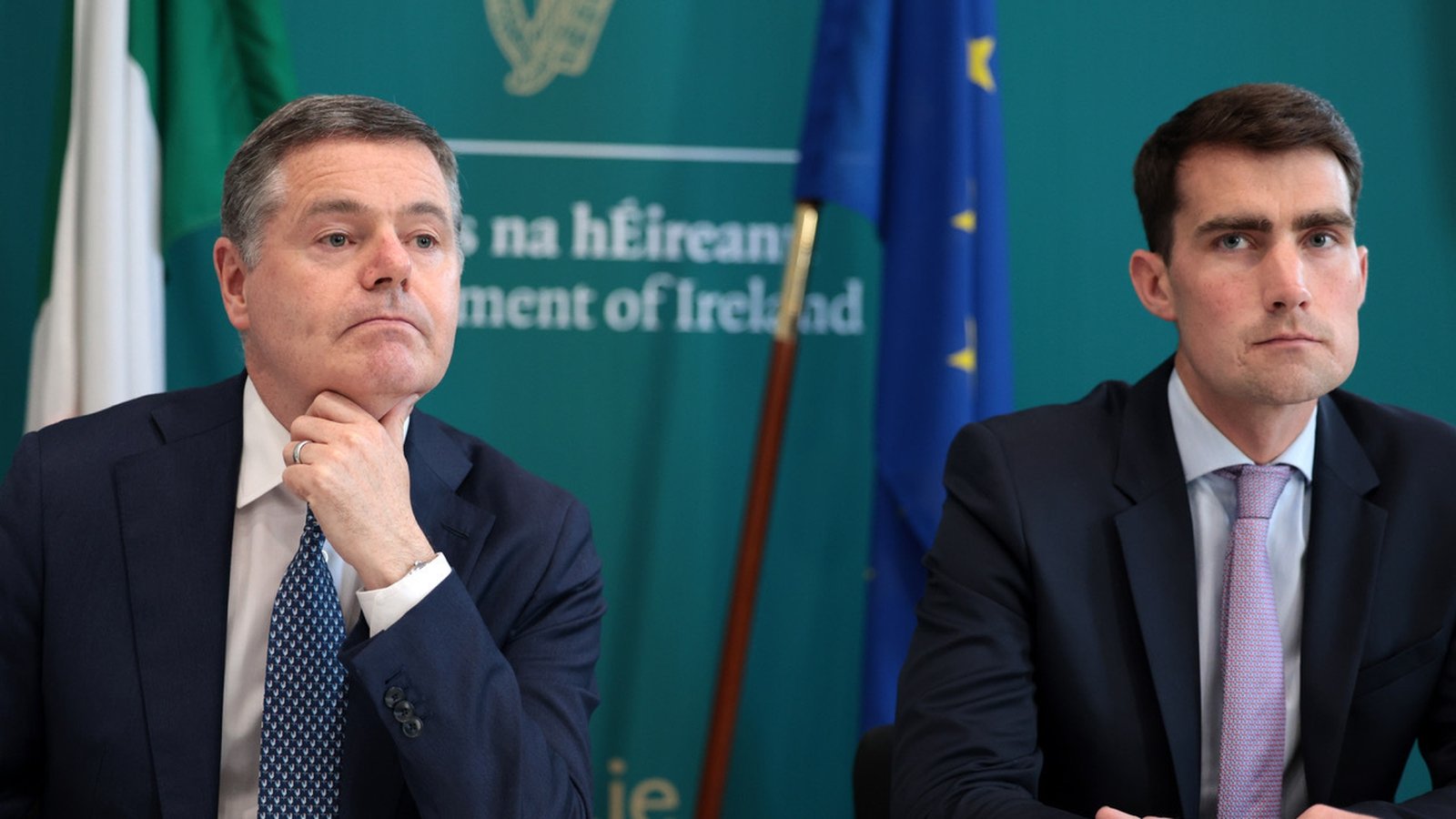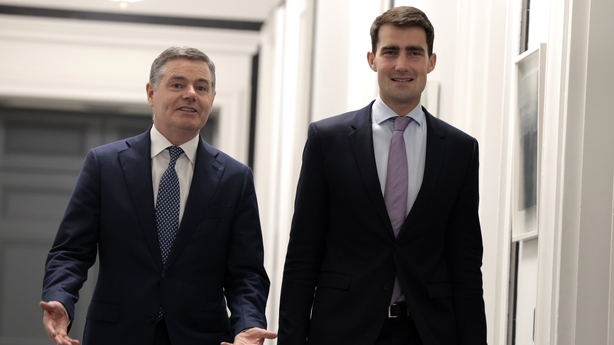Bussiness
Budgetary dilemma for Govt as corporation tax rolls on

Being Minister for Finance carries a lot of pressure.
Being dropped into the position of Minister for Finance four months out from the budget carries even more.
That’s the situation Jack Chambers finds himself in as he gets to grips with his demanding new brief, a little over a week after he was appointed to it.
But the pressure on him ratcheted up to another level today with the publication of the latest exchequer returns, covering the first half of the year.
If you want to adopt a budgetary stance of being prudent, of unwinding so-called “one-off” spending that has become engrained in recent years as this Government wishes to, it would be much easier to do it if you were strapped for cash.
Instead, Minister Chambers faces a situation where he has too much of it.
In the first six months of the year the State took in a total of €44.7 billion in tax.
That’s up more than 9% on the same period last year and was driven by the golden goose that continues to lay golden eggs, corporation tax.
It has yielded €12.2bn so far this year, an increase of €1.6bn on the January to July window in 2023.
That represents a 15.4% increase, with June’s returns rising by 38% alone year on year – a staggering jump.
It means the amount of money collected from corporation tax so far this year is up 11% on where the Department of Finance thought it would be.
And the department’s chief economist, John McCarthy, said it was possible it could overperform again in November, which is a key month for the tax.
We have all been well warned by now that corporation tax is volatile, unreliable, windfall in nature and that we can’t rely on it for current spending into the future.
But the reality is, it continues to yield huge amounts of money for the exchequer.
And it isn’t just corporation tax that continues to outperform.
So too does income tax and VAT, as well as some lower yielding tax heads.
It all means the Government is on track to have a surplus this year of around €8bn.
It is, as Goodbody stockbrokers chief economist Dermot O’Leary describes it, “a high quality problem”.
And one which will have Jack Chambers colleagues in Government rubbing their hands with glee as they look out to a general election definitely within the next eight months and quite possibly before.
Will Minister Chambers be able to resist the urge to splurge in Budget 2025?
He maintains he will, telling RTÉ News today that he is very clear that the budgetary strategy will involve “a sensible approach” being taken, one which reflects the reduced inflationary environment.
“That is why it will be a much tighter budget in the context of different expenditure demands that might come from ministers,” he said.
His stance will be made somewhat easier by the Government’s plan to set up two funds for the future, into which excess corporation tax receipts are to be put.

With €10bn due to be transferred into the Future Ireland Fund and the Infrastructure, Nature and Climate Fund by year end, that will deal with some of the excess cash floating around being eyed up by demanding ministers.
One problem which will have to be overcome though between now and Budget 2025 will be the annual problem of an overspend in health.
Paschal Donohoe told a press conference today that already this year the health department is €1.1bn over budget.
But he’s also getting to grips with it, he indicated, working with Minister for Health Stephen Donnelly on a plan to bring the budget back in line over the remainder of the year.
That could mean a squeeze on some services, a risky thing to do in the run up to an election.
Minister Donohoe will therefore face a dilemma of whether to tackle the problem, or just throw more money at it to solve it.
Much more will be revealed about the Government’s budgetary strategy on Tuesday when it publishes the Summer Economic Statement.
It lays out the broad parameters of the budget and gives a reasonable indication of the amount of spare cash the two ministers will have at their disposal.
We may still be four months out from the budget.
But make no mistake about it, the debate, disputes and wrangling about what should and should be in it, is well under way.










